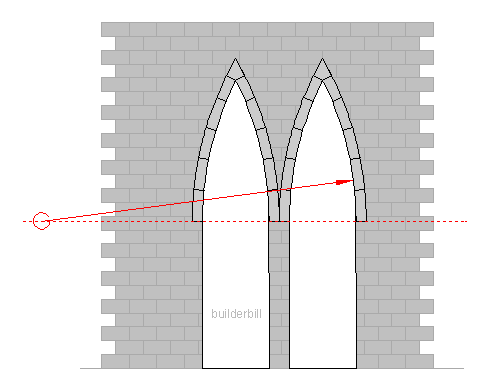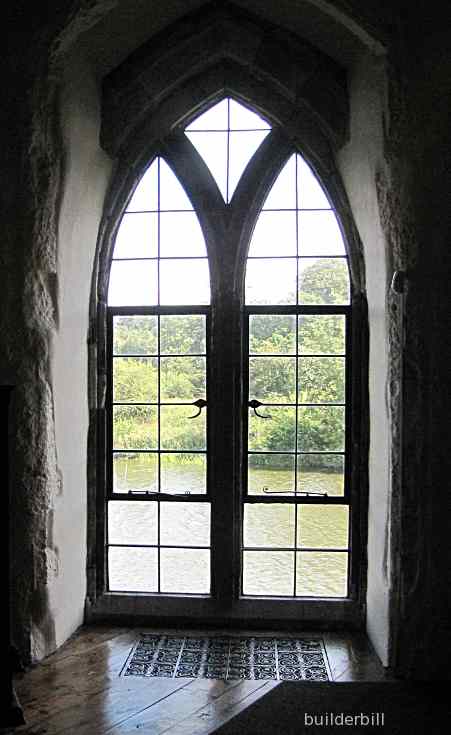 |
|||||
Graphical Construction Glossary >> masonry. >> arch >> Lancet Arch
The two arches above are extreme, but they do show the centre of the arc is well outside of the arch, making the height quite a lot higher than the span.
By far the greatest use of the lancet form is the division of equilateral arched openings to form windows. The photo here is with the arch divided into two main sections, but the number of lancets usually increases as the window gets wider. Once again the old master builders came up with a solution to a problem in a beautiful and decorative way. The window above at Leeds Castle in Kent is maybe six hundred years old. The art of glass-making was alive and well in those days but it was still a small cottage industry and the sizes of the panes or sheets of glass produced was quite small. So of necessity came about the the division of window openings into smaller sections. Note that this particular widow uses fairly modern glass in a 19Th. century wrought iron frame. If you didn't find exactly what you are looking for try this search tool that will search the site and the web. "What can be added to the happiness of a man who is in health, out of debt, and has a clear conscience? "When we build, let us think that we build for ever."John Ruskin 1819-1900 |
Hire Equipment  Furniture Fittings - Architectural Hardware - Electronic Locking Systems - Technical Hardware BuilderBill sponsorship Glossary Pages.Roof Glossary and Roofing Formwork Glossary and other tempory work. Hand Tools Glossary Power Tools Glossary Asbestos Glossary Woodwork Glossary Stair Glossary Concrete Glossary Masonry Glossary doors Glossary BuilderBill Books Building Maths  Stair Design  Asbestos Book |
||||
|
|
|||||
|
Please Note! The information on this site is offered as a guide only! When we are talking about areas where building regulations or safety regulations could exist,the information here could be wrong for your area. It could be out of date! Regulations breed faster than rabbits! You must check your own local conditions. Copyright © Bill Bradley 2007-2012. All rights reserved. |
|||||

